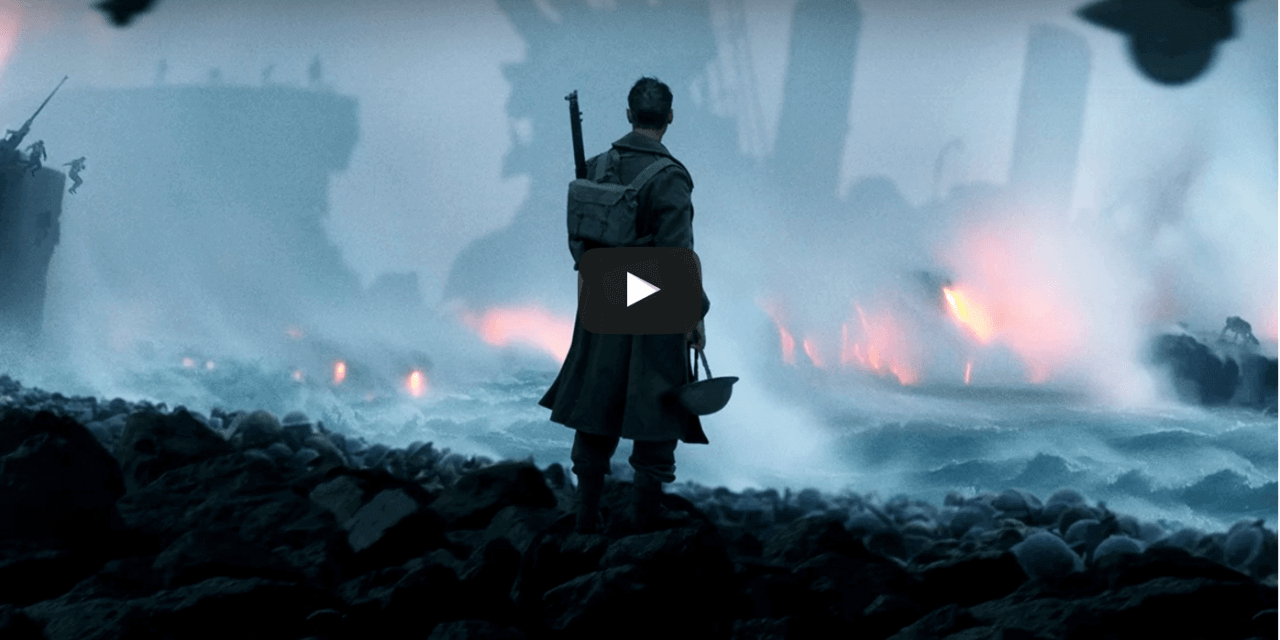‘Dunkirk’ | Movie Review – Finest Hour (And Forty-Seven Minutes)
Young Christopher Nolan has done it at last. He started off his film career with a few brainless thrillers marked by laughably simple narrative structures. Then he awkwardly stumbled through that mess of a trilogy about the unconventional nightlife of an eccentric billionaire. In between came a trickless story about magic, and a film about dreams that was a real struggle not to sleep through. Most recently there was that atrociously unambitious one about crops dying out or something. Nine feature-length movies, all embarrassingly unsophisticated and appealing to the lowest common denominator. Leading up to his tenth, Dunkirk, his career seemed dead in the water, just like the subjects of the film. Well, colour me surprised. The bugger has managed to create something half-decent at last. This movie might even give Munna Michael a run for its money at the box office this weekend.
Now before you proceed any further, students of eighth-standard history be warned: this review contains spoilers
It’s early June 1940. Hundreds of thousands of British and French troops are trapped on the beaches of Dunkirk. The advancing Germans have cut off the land on all three sides, and the only way out for the troops is across the sea, where the Heinkels can pick them off from the skies like fish in a barrel. If by some miracle they escape the bombers, U-boats are lurking in the water. Escape would truly require a miracle of deliverance. Dunkirk tells the story of that miracle.
I was hoping for one of the best war movies of all time, but I didn’t quite get that here. What I did get was one of the best battle movies of all time. Unlike great war films we’ve seen, it isn’t very concerned with politics or military strategy, or acts of horror and redemption during wartime, or the effects of war on the human psyche. Incredibly, it still manages to touch on all these things, but its main object is to immerse the viewer into the experience of battle. By god, does it succeed.
The story of Operation Dynamo is told through three points of view: one in the air, one on the beach, and one in the water. The cinematography and the sound design masterfully serve the story, placing us right alongside the characters in these settings. We feel the roar of the planes, the thunder of the bombs, the suffocating menace of the oceans. (If there’s an IMAX screen near you, make sure you don’t watch the film anywhere else) The use of time has always been one of Nolan’s secret weapons – the clock is almost a character by itself in several of his films in terms of the sheer power it holds over the narrative. Think of the jumps in Memento, the importance of keeping an eye on the watch in Inception, the temporal shenanigans around the black holes in Interstellar. Nolan’s prowess as a time lord emerges in full force again in Dunkirk. Each of the three POVs corresponds to a different time frame, and their ultimate intersection is sheer storytelling elegance.
Oscar nominations should arrive by the shiploads. The screenplay is a thing of beauty, conducting as it does the time orchestra mentioned above, while also giving us intimate perspectives of individual characters, and lightly touching on so many broader elements of the war as well – the shakiness of the alliance between the British and the French, cross-functional grumbling between the army/navy/air force, the unseen heroism of ordinary civilians. Christopher Nolan (with a little help from Winston Churchill) should pick up a Best Screenplay nod in addition to what seem like surefire nominations for Best Director and Best Picture. Also, the Nolan-Zimmer collaboration continues to be the grandest movie romance of modern times. The brilliant composer should expect to see some love from the Academy as well. Lastly, in the hope of attracting some Directioners to this review and boosting those page hits – Harry Styles is pretty damn good in this movie. If Dunkirk were in contention for Indian award shows, he’d be a shoo-in for Dabur Debut of the Year or something.
So yeah, give this a shot at the cinema, guys, as much as you may have been anticipating Munna. Chris Nolan is no Tiger Shroff, but he’s really trying.
Rating: 5 /5 Stars
You may also like...
2 Comments
Leave a Reply
Cancel reply
-
Advertisement
Copyright © 2020 Indian Nerve. All Rights Reserved.




Pingback: Game Of Thrones, Season 7 Episode 2 – ‘Stormborn’ | Review – Smoke on the Water | Indian Nerve